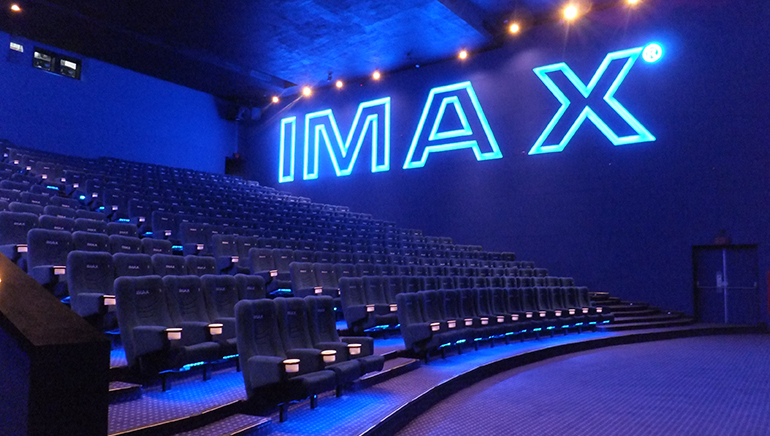IMAX has filed an application with the Hong Kong Stock Exchange (HKEx) for an initial public offering (IPO) of its China unit in Hong Kong (IMAX China Holding), as it plans to participate in the world’s fastest growing movie markets. Imax made about 30% profit last year through its China unit, which is not surprising as since 2012 it has nearly doubled its number of theatres in the Greater China region. Currently, IMAX has 239 theatres in China, Hong Kong and Taiwan, and it plans to build 219 more theatres in China itself. China is a critical growth market for IMAX, and if plans go well it will be the largest market for the company.
There are a total of 934 IMAX theatres in 62 countries.
China is a $10.35 trillion economy making it the second-largest economy in the world, USA being the first with $17.41 trillion size and owning approximately 22.44 percent of the gross world product. In 2014, China’s box office revenues increased by 36% to $4.8 billion. IMAX is already listed on the New York Stock Exchange, and after its announcement of an IPO in Hong Kong, its shares jumped up 9%. IMAX tickets are on the higher side as the experience it promises is extraordinary. Each ticket costs $24 or about Rs. 1500.
The IMAX Experience
IMAX is an acronym for Image MAXimum; and is used for both IMAX Corporation (a Canadian company) and a motion picture film format and a set of cinema projection standards created by IMAX Corporation. IMAX is capable of recording and displaying images of far greater size and resolution than the conventional film systems. IMAX is the most widely used system for special-venue film presentations.
IMAX management has been signalling for some time now that it wanted to list its Chinese subsidiary on the Hong Kong Stock Exchange. IMAX China Holdings is incorporated under the laws of the Cayman Islands, and the China subsidiary is being used to oversee the expansion of IMAX’s business throughout Greater China.
A Strategic Move
Before the IPO, in a strategic move, IMAX sold its 20% stake for $80 million to two companies, CMC Capital Partners which is a media-and-entertainment-focused investment fund, and FountainVest Partners which is a China-focused private equity firm. These investments were strategic as IMAX not only found partners for its operations in China, it also received on-the-ground guidance in China which is important to grow in the Chinese market.
As per Chinese rules, it’s mandatory for any foreign firm to work under a Chinese firm, thus the stake selling was done as a key prerequisite for completing an eventual IPO in China. As per the deal, IMAX would expand its screen counts in China, and would screen both Hollywood and Chinese movies to satisfy the local regulations and the market demands.
IMAX is known in the market for its giant-screen experiences in the film sector. Fox had introduced in 1929, the first 70 mm film format, Fox Grandeur, which wasn’t successful. Later, in 1950s Cinemascope and VistaVision with 35 mm films and multi-projector systems such as Cinerama were introduced. In 1967, a company called Multiscreen was founded to cater to the demands of a better visual experience through multi-projector and multi-screen systems. This company later changed its name to IMAX and in the course of time developed its current giant 2D and 3D screens with high cinematic techniques.















